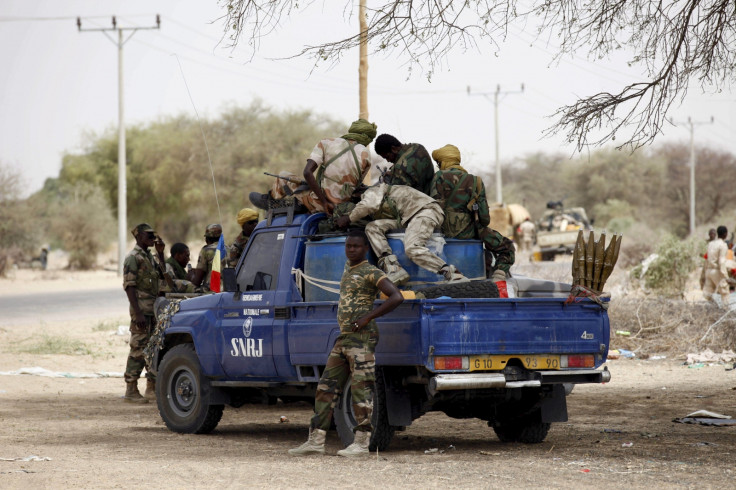Boko Haram has displaced 40,000 people in Chad in past two weeks, says MSF aid agency

Relentless attacks by Islamist militants Boko Haram have displaced as many as 40,000 people in Chad from their homes in the past two weeks, says aid agency Medecins Sans Frontieres. The news came a day after Nigeria's President Muhammadu Buhari told Chad's visiting minister of foreign affairs, Moussa Faki Mahamat, that he is convinced the end of the Boko Haram is in sight.
Armed gunmen have assaulted villages around the Lake Chad region, shooting the residents and burning their homes to the ground. Many have fled on foot to makeshift camps in the Bol and Baga Sola districts where Medecins Sans Frontieres (MSF) is running mobile clinics.
"The other day I heard some shots being fired in the nearby village and I fled with my wife and my eight children," Mahamad, 57, told the aid group. "Many of us had our houses burned down, and I am lucky no one I know was killed. But we only have enough food to eat once per day."
Since January Human Rights Watch has been collecting evidence from Nigerian refugees who fled a Boko Haram massacre in the village of Baga near Lake Chad that they say amounts to "crimes against humanity" perpetrated by the insurant militants. The gunmen killed as many as 2,000 people, burned the village to the ground, and abducted hundreds.
Boko Haram, which allied itself with the Islamic State terror group in 2014, has waged an guerrilla-style insurrection across Nigeria, Cameroon, Chad, and Niger to varying degrees in the past six years. At least 1,300 people have died in fighting in the Lake Chad region so far this year, according to MSF.
Refugees from the village make up many of the 7,000 from Nigeria and Niger camped out at the Dar Es Salam refugee camp in Baga Sola. "Women and children are particularly vulnerable in this situation, and medical needs in general are high," said Federica Alberti, head of mission for MSF in Chad.
"Some pregnant women have walked several kilometres in searing heat to seek medical attention. People are living without proper shelter, and do not have access to food or clean drinking water. Due to the harsh living conditions and the rainy season, we are already treating patients with diarrhoea, malaria and respiratory infections as well as malnourished children."
With the rising number of attacks Chad is stepping up military patrols in the area. Suicide bombings by Boko Haram that struck Chad's capital N'Djamena on 15 June and 11 July have proven the value of MSF's efforts to train the country's Ministry of Health staff how to manage mass casualties and respond to emergencies.
Yet Nigeria and Chad must be prepared to make more sacrifices to defeat Boko Haram, Buhari told Mahamat on 20 August. "We will sustain our effort, and the insurgents will be defeated soon," Buhari vowed.
© Copyright IBTimes 2024. All rights reserved.






